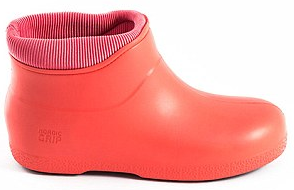Love your liver...
Q. Can you explain what non-alcoholic fatty liver disease is? I am 45, thin and fit, but my doctor says I have this condition. My only ‘vices’ are chocolate and sugary foods. A. This term refers to the build-up of fat in the liver cells of people who do not abuse alcohol. It is most often associated with obesity but can be related to other medical conditions including diabetes mellitus, high cholesterol, poor diet including high intake of saturated fats, sugary foods and drinks, and some medications such as steroids, antiviral drugs and the antibiotic tetracycline. Being over the age of 50 and smoking are also factors.
The liver is the largest internal organ, about the size of a rugby ball, and is vital for making your body run smoothly. Its many functions include helping your digestion, controlling the production and removal of cholesterol, clearing your blood of waste and toxins, and helping to combat infection.
A healthy liver should contain little or no fat. The majority of people diagnosed with non-alcoholic fatty liver disease (NAFLD) only carry a small amount, which does not cause symptoms. The early form of the disease, ‘simple fatty liver’, affects up to 30 per cent of people in the UK and is usually only discovered when they have a blood test or an abdominal scan for other reasons.
In most people, simple fatty liver disease is unlikely to cause harm. But if the fat builds up it can lead to progressive liver disease (cirrhosis) and an increased risk of heart disease, says Professor Martyn Caplin of the Royal Free Hospital.
There are no specific medicines to treat NAFLD as yet. The only proven therapy is diet and exercise. Dietitian Tara Whyand advises reducing your sugar intake to under ten per cent of total calories. The maximum amount of added sugar you should eat in a day is nine teaspoons for men and six for women according to the American Heart Association. If you want a sweet taste, use a low-calorie sweetener such as xylitol or stevia.
Avoid sugary drinks containing industrial fructose as they have been implicated in the development and progression of NAFLD, according to consistent experimental and clinical research findings.
Choose oily fish, nuts and seeds, and olive oil rather than saturated animal fats.
Low levels of vitamin D3 have been found in patients with NAFLD, so ask your doctor for a test and to prescribe a supplement if necessary.
Specific ingredients may help prevent NAFLD progressing. These include green tea, lycopene (from tomatoes and watermelon), vitamin E (avocados and sunflower seeds) and curcumin (from turmeric). However, to equal the large amounts used in trials, you would need to load each meal. So, as well as including them in your diet, consider a dietary food supplement such as ProfBiotics Liver, which contains them all. £35 for a month’s supply from www.victoriahealth.com or www.profbiotics.com.
 Many dentists now advise using interdental brushes rather than floss for more efficient cleaning between teeth. They are also easier to use provided you have the right size. My tooth-testers and I are fans of good-value DenTek Slim Brush (£3.99 for 32, www.boots.com). It comes in various sizes but we find the tapered 0.45mm suits most people.
Many dentists now advise using interdental brushes rather than floss for more efficient cleaning between teeth. They are also easier to use provided you have the right size. My tooth-testers and I are fans of good-value DenTek Slim Brush (£3.99 for 32, www.boots.com). It comes in various sizes but we find the tapered 0.45mm suits most people.
WEBSITE OF THE WEEK; www.wellchild.org.uk/notanurse_but
#Notanurse_but is a parent-driven campaign, launched by WellChild to highlight the gaps in support for families. Parents, carers and professionals are urged to share their stories and say what would help, emotionally, practically or financially. Do watch the story of Leanne, whose disabled daughter Sophie is cared for at home.
 My Beauty Bible co-author Jo Fairley has broken both wrists, on separate occasions, slipping on wet grass in her sloping garden. She credits Nordic Grip Non Slip Ankle Boots by Unikia for restoring her shattered confidence. Available in five colours, £41.95, www.cuckooland.com
My Beauty Bible co-author Jo Fairley has broken both wrists, on separate occasions, slipping on wet grass in her sloping garden. She credits Nordic Grip Non Slip Ankle Boots by Unikia for restoring her shattered confidence. Available in five colours, £41.95, www.cuckooland.com

